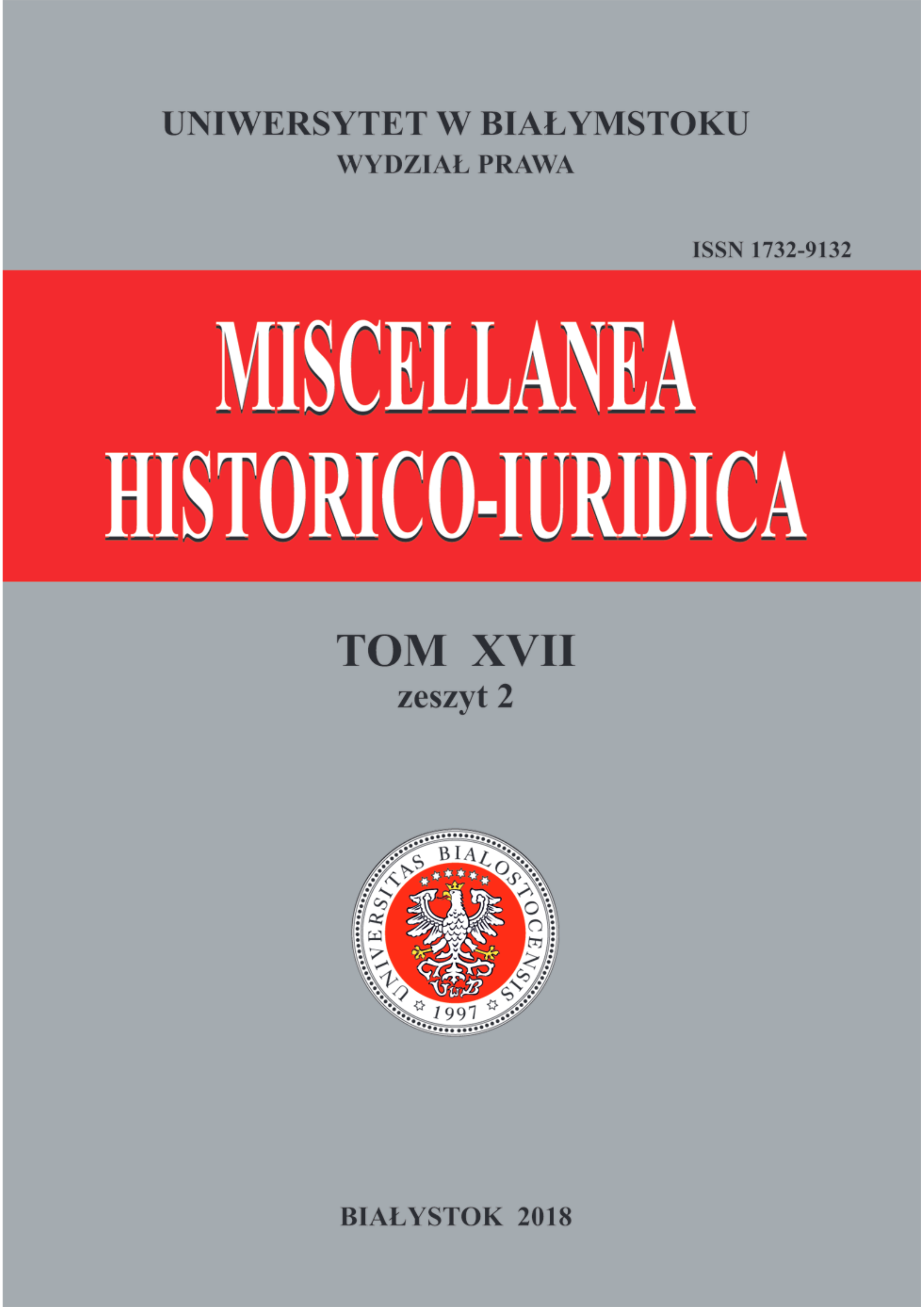Legal framework of public contracts in Roman Republic
Keywords:
locationes censoriae, operae publicae, making a contract by censors, responsibilites of private contractorsAbstract
Rome in the republican period used to allocate public services, building projects etc. to private contractors. Locationes censoriae was a main legal tool to that end. The system of legal rules was developed, which operate on the border of the public and private sectors producing a legal, economic and political intertwining of both spheres. A sophisticated set of rules introduced by custom and maintain by tradition, determined the procedure of enactment of intention to make a contract and auction to choose a contractor with whom to conclude a contract. Its rules covered also the way to secure the position of the state either by way of a real right (ownership, right of pledge, mortgage) or by additional debtors (personal security), usually both, which could lead to severe responsibilities for contractors and their guaranties.
References
Badian E., Publicans and sinners. Private enterprise in the service of the Roman Republic, Oxford 1972.
Berve H., s.v. lustrum, RE 13.2 (1927).
Coarelli F., Public Building in Rome between the second Punic War and Sulla, tłum. M. Hewson Crawford, “Papers of the British School at Rome” 1977, nr 45.
DuPlessis J. P., The Protection of the Contractor in Public Works Contract in the Roman Republic and Early Empire, “Journal of Legal History” 2004, nr 25 z. 3.
Fiori R., La definizione della ‘locatio conductio’. Giurisprudenza romana e tradizione romanistica, Napoli 1999.
Gast K., Die zensorischen Bauberichte bei Livius und die römischen Bauinschriften: Versuch eines Zugangs zu livianischen Quellen über Formen der Inschriftensprache, Diss. Göttingen 1965.
Malmendier U., Societas publicanorum: staatliche Wirtschaftsaktivitäten in den Händen privater Unternehmer, Wien 2002.
Martin D. S. Reconsideration of Probatio operis, „Zeitschrif für Savigny Stiftung. Rom. Abt.” 1986, nr 103.
Milazzo F., La realizzazione delle opere pubbliche in roma arcaica e repubblicana, Napoli 1993.
Mommsen Th., Römisches Staatsrecht, Bd.II,1, Leipzig 1877.
Pellecchi L., La legge e il magistrato. Intorno a una tecnica normativa romana, [w:] Le docici Tavole. Dai decemviri agli Umanisti, red. M. Humbert, Pavia 2005.
Pikulska-Radomska, A. Fiscus non erubescit. O niektórych Italskich podatkach okresu rzymskiego pryncypatu, Łódź 2013.
Rainer J. M., Public Building contracts in the Roman Republic, [w:] Obligations in Roman Law: Past, Present, Future, red. A.J.T. McGinn, Ann Arbor 2013.
Talamanca M., Le dodici Tavole ed i negozi obbligatori, [w:] Le docici Tavole. Dai decemviri agli Umanisti, red. M. Humbert, IuSS Press, Pavia 2005.
Tarwacka A, Censores edixerunt: przedmiot i cele edyktów cenzorskich, „Czasopismo Prawno-Historyczne” 2011, nr 63, z. 1.
Tarwacka A., Prawne aspekty urzędu cenzora w starożytnym Rzymie, Warszawa 2012.
Trisciuoglio A., Sarta tecta, ultrotributa, opus publicum faciendum locare. Sugli appalti relativi alle opere pubbliche nell’età repubblicana e augestea, Napoli 1998.
Wesener G. Praediatura, RE Suppl. 14 (1974).
Wieling H.-J., Privilegium fisci, praediatura und Protopraxie, „Zeitschrift für Savigny Stiftung. Rom. Abt.” 1989, nr 106.
Wołodkiewicz W., Zabłocka M., Prawo rzymskie. Instytucje, Warszawa 2015.
Ziółkowski A., Historia Rzymu, Poznań 2008.







